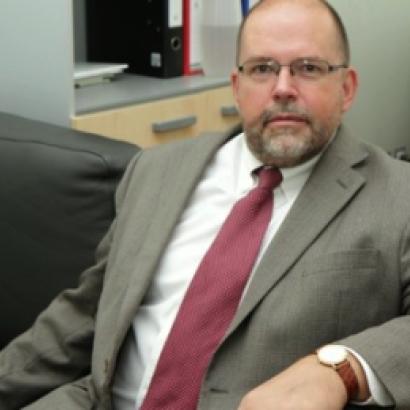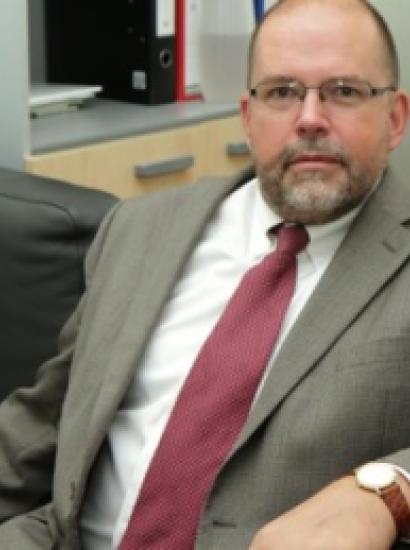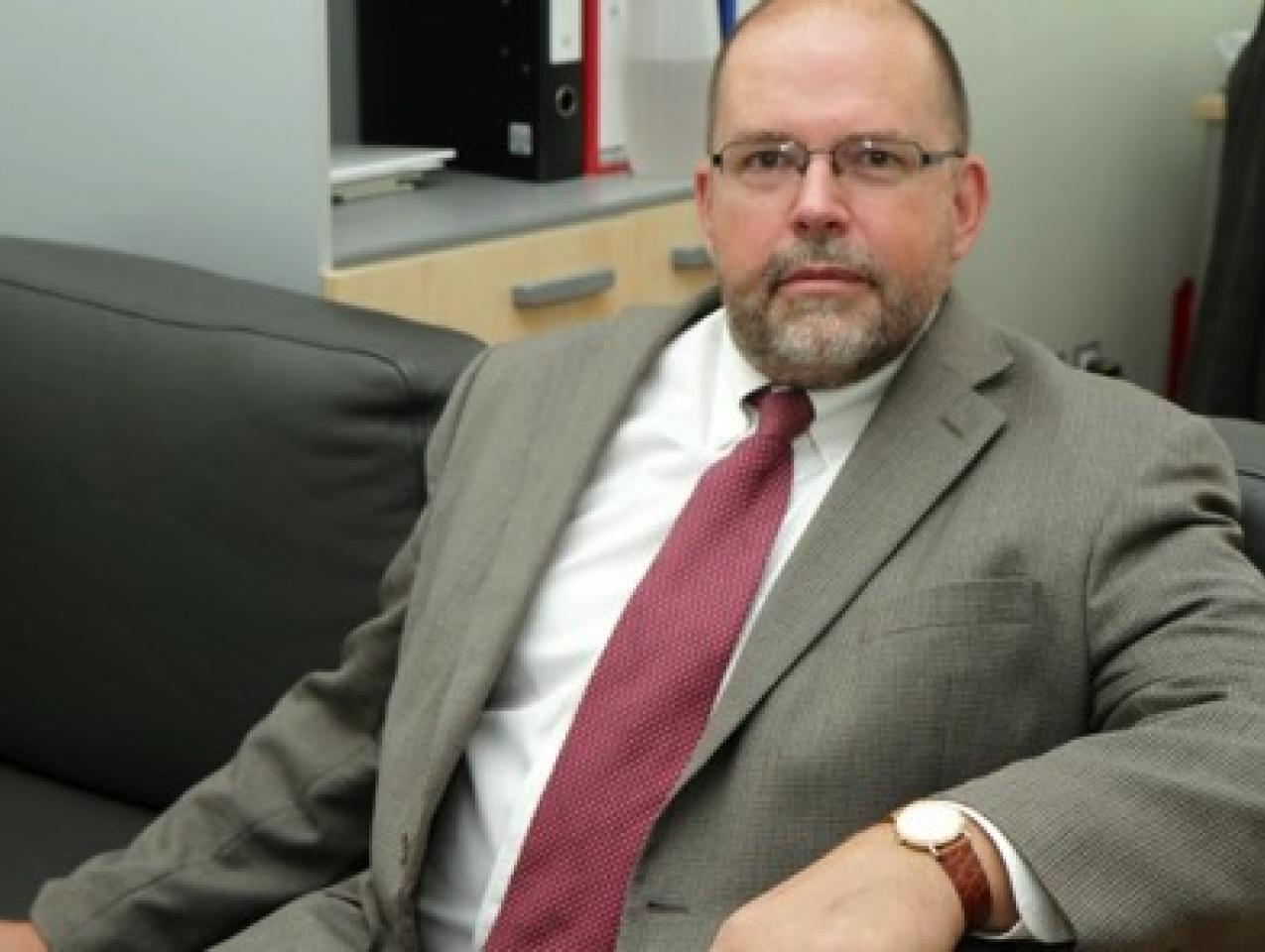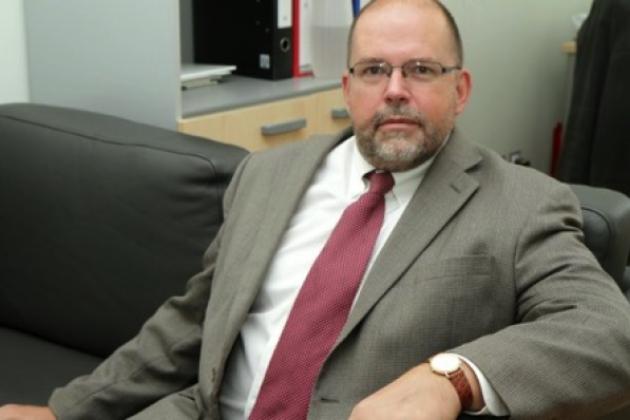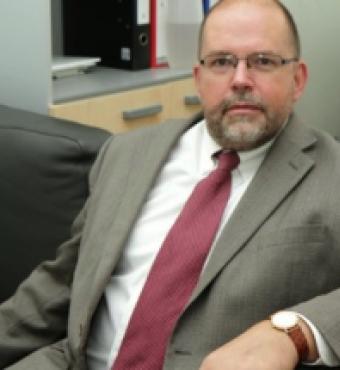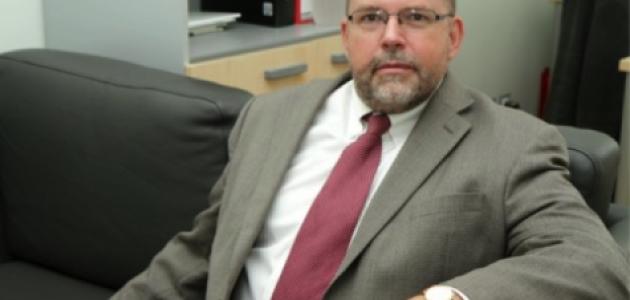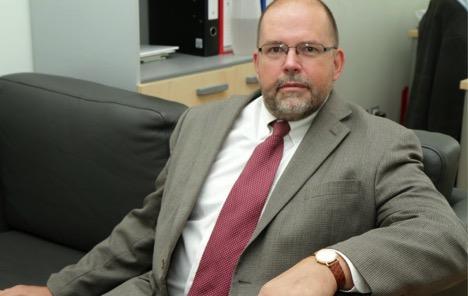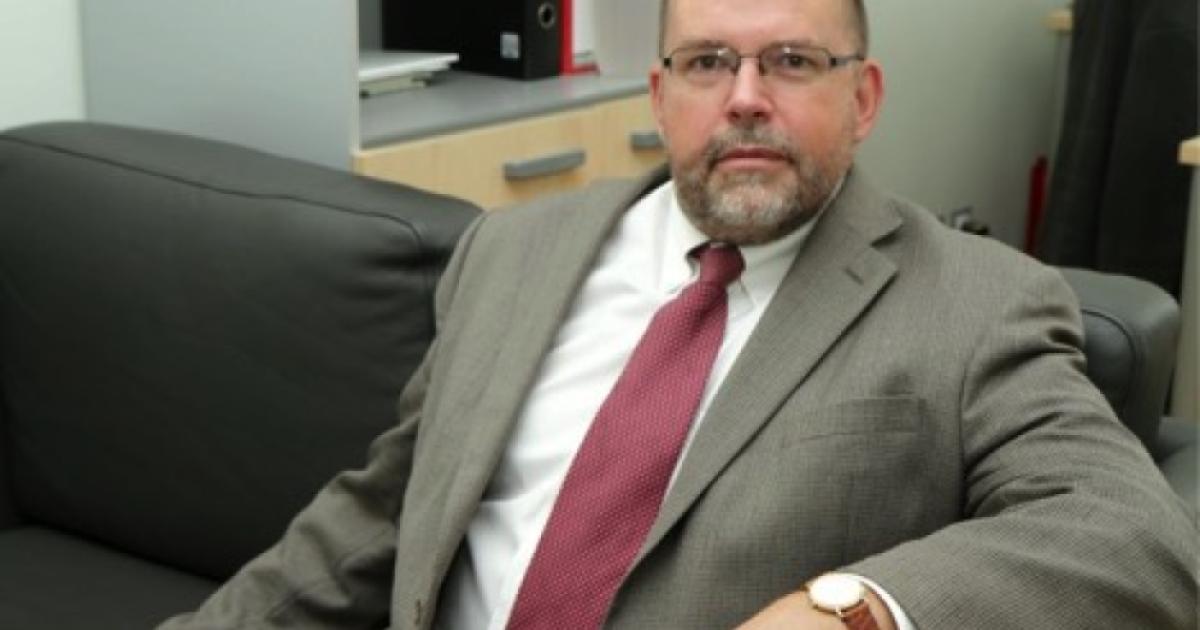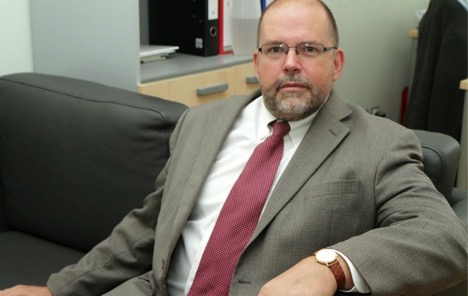
By David Jacobs
On September 4, Andris Rāzans, the Latvian ambassador to the United States, and Dace Melbarde, the Latvian minister of culture, visited the Hoover Institution Library & Archives and viewed items from the archives’ Latvian collections, including treasures that are shown to such visitors. Following the presentation, Minister Melbarde voiced her hopes for greater cooperation between Hoover and the Latvian State Archives, specifically to the celebration in 2018 of the hundredth anniversary of the founding of the Latvian republic; a large exhibit will be held in Rīga to mark the occasion.
Later that day, Pēteris Kārlis Elferts, ambassador at large for the Latvian diaspora, spoke at Hoover on “Protest and Civil Disobedience: The Struggle for Baltic Independence.” The first period of Latvian independence ended with the forcible annexation of Latvia by the Soviet Union in 1940; protests against Soviet rule in the Baltic States occurred throughout the Cold War. In the early 1970s, a younger generation in the Latvian diaspora took up actions that borrowed from the American civil rights and peace movements, using street theater and civil disobedience to bring attention to the cause of renewed independence for Latvia and the other two Baltic States, Estonia and Lithuania. That independence was achieved in 1991 with the collapse of the Soviet Union.
Ambassador Elferts gave specific examples of pro-independence actions, a number of which he participated in, including protests at international conferences and the spraying of pro-Latvian graffiti on the Berlin Wall. Elferts took questions at the end of his talk, which was sponsored by the Library & Archives. The questions elicited further information about protests during the Cold War, including the attitude toward them by the older generation in the Latvian emigration. Some questions related to current developments in the Baltic States, specifically the recent increase in tensions with Russia following the crisis in Ukraine. Materials from the Latvian collections of the archives were on display at the time of Ambassador Elferts’s talk.




